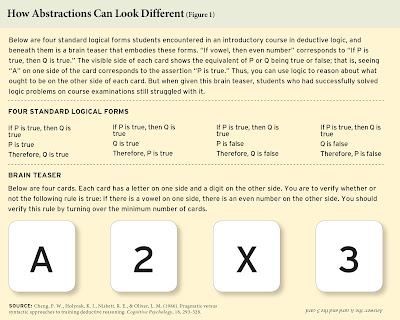Friday, October 26, 2018
Rules-based systems
In many cases, it is more practical to use a simple but uncertain rule rather than a complex but certain one, even if the true rule is deterministic and our modelling system has the fidelity to accommodate a complex rule. For example, thesimple rule “Most birds fly” is cheap to develop and is broadly useful, while a ruleof the form, “Birds fly, except for very young birds that have not yet learned tofly, sick or injured birds that have lost the ability to fly, flightless species of birdsincluding the cassowary, ostrich and kiwi. . .” is expensive to develop, maintainand communicate and, after all this effort, is still brittle and prone to failure.
Monday, October 22, 2018
Sunday, October 21, 2018
Thursday, October 04, 2018
Wednesday, October 03, 2018
Tuesday, October 02, 2018
Monday, October 01, 2018
Subscribe to:
Comments (Atom)



